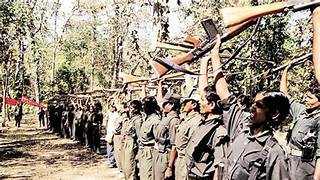Judicial Intervention in Narayanpur Clash Raises Questions on Police Operations in Naxal-Hit Bastar Region
Published on: September 26, 2025
By: BTNI
Location: Raipur, India
In a significant judicial move, the Supreme Court of India on September 26, 2025, directed the Chhattisgarh government to immediately preserve the body of senior Maoist leader Katha Ramchandra Reddy (also known as Katta Ramachandra Reddy), who was killed during a police encounter in Narayanpur district on September 22.
The 63-year-old commander, a Central Committee member of the banned Communist Party of India (Maoist) with a bounty of Rs 40 lakh, was allegedly gunned down alongside another top leader, Kadari Satyanarayana Reddy (67), in the dense Abujhmarh forests bordering Narayanpur and Dantewada districts. The police described the operation as a major success, claiming the duo were masterminds behind multiple violent attacks in the Bastar region that killed security personnel and civilians.
With this encounter, the tally of Naxalites neutralized in Chhattisgarh this year stands at 249.The directive came in response to a petition filed by Reddy’s son, Raja Chandra, a researcher at NALSAR University of Law in Hyderabad. Chandra alleged that his father’s death was a “fake encounter” staged by the police, demanding a CBI probe conducted by officers from outside Chhattisgarh to ensure impartiality. He sought preservation of the body in a government morgue for postmortem and argued that the encounter violated due process. The bench, comprising Justices B.R. Gavai and K.V. Viswanathan, emphasized the need for transparency in such high-stakes operations, ordering the state to maintain the remains until further hearings.
Also read- https://www.btnewsindia.com/contract-terminated-for-failure-to-complete-work-security-deposit-forfeited/ https://www.btnewsindia.com/awareness-programs-organized-in-tribal-villages-under-seva-parv-and-aadi-karmyogi-abhiyan/
This case highlights ongoing tensions in Chhattisgarh’s anti-Naxal campaign, where aggressive security drives have led to over 225 encounters this year alone, but also sparked accusations of extrajudicial killings. Human rights groups have long criticized the “encounter economy,” alleging staged killings to boost promotion quotas for police personnel. The state government, however, maintains that such operations are essential to eradicate Left-Wing Extremism by March 2026, as pledged by Union Home Minister Amit Shah. The next hearing is scheduled in two weeks, potentially setting a precedent for future encounter probes.



